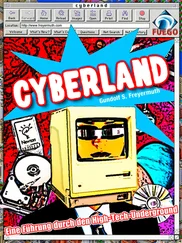For more than a decade now, I have gained motivation, information, and most importantly inspiration from the students of the BA and MA programs at the ifs international film school Cologne and since 2010 from the students of the further education Master’s Degree at the Cologne Game Lab. My thoughts on digital games were continuously influenced by conversations and debates with three colleagues, with whom I’ve had the privilege of editing two anthologies on games over the last few years: Benjamin Beil, Lisa Gotto, and Fabian Wallenfels, as well as through lectures and encounters with numerous guest lecturers, whom we were able to invite to the Cologne Game Lab, including Espen Aarseth, Georg Backer, Csongor Baranyai, Chris Crawford, Tracy Fullerton, Martin Ganteföhr, Thomas Hensel, Jörg Müller-Lietzkow, and Eric Zimmerman.
Different versions of parts of this text have already appeared in anthologies—in German and English; I must also thank the editors of those versions for their proofreading. 52
Numerous suggestions and corrections from my Game Lab colleagues Björn Bartholdy, André Czauderna, and Katharina Tillmans as well as Carmen Schneidereit helped to improve the German manuscript. Carmen Schneidereit also provided the layout. For this edition, André Czauderna, Nathalie Pozzie and Eric Zimmerman graciously provided valuable contributions for which I am very grateful.
Leon Freyermuth diligently translated most of the German text and helped me edit my own translations. Curtis L. Maughan helped with the copy editing of the English manuscript, thereby significantly improving its linguistic quality and clarity—which of course does not change the fact that all of the remaining mistakes and deficiencies remain my fault alone.
Last but not least, Elke Freyermuth patiently followed along with the protracted process that went into creating this book in its different versions.
To all of you: Thank you!
I dedicate this book to my academic mentor Eberhard Lämmert (1923-2015). I owe him so much.
1Juul, Jesper: Half-Real: Video Games Between Real Rules and Fictional Worlds , Cambridge, Mass.: MIT Press (Kindle edition) 2005, loc. 26 and Donovan, Tristan: Replay: The History of Video Games , Lewes, East Sussex: Yellow Ant (Kindle edition) 2010, loc. 74.
2Social and technological changes effect semantic change. The use of the word computer demonstrates that. According to the Oxford English Dictionary, computer was first used in 1613 as a designation for humans who were making calculations or computations ( http://www.oed.com/view/Entry/37975?redirectedFrom=computer - eid). In 1869 computer was used for non-human calculators for the first time (ibid.; see also OED, ibid.). In everyday live, however, computer continued to denote “a person who solved equations; it was only around 1945 that the name was carried over to machinery.” (Ceruzzi, Paul E. A History of Modern Computing , Cambridge Mass.: MIT Press 1998, p. 1) At that point it came to mean analog computing machines. If you were discussing one of the few existing digital computers, you had to explicitly emphasize this. Within a decade, however, this relation reversed: By the end of the 1950s, computer meant digital computer. If you were discussing analog computers, you had to explicitly emphasize this.—The cultural rise of digital games seems to effect a similar change: The word “game” has come to mean digital game. If we are discussing analog games, we soon might have to explicitly emphasize this.
3Compare for a definition of these fields of work below. p. here.
4Zimmerman, Eric: “Manifesto for a Ludic Century,” Kotaku , September 9, 2013; http://kotaku.com/manifesto-the-21st-century-will-be-defined-by-games-1275355204.
5Ibid.
6Ibid.
7Ibid.
8Ibid.
9Compare for this in more detail below p. hereff.
10Compare below chapter II, part 2 Digital Design, p hereff.
11See Chaplin, Heather: “Will The 21st Century Be Defined By Games?,” Kotaku , September 12, 2013; http://www.kotaku.com.au/2013/09/will-the-21st-century-be-defined-by-games/
12Luhmann, Niklas. The Reality of the Mass Media , Stanford, Calif.: Stanford University Press 2000, p. 97.
13Wardrip-Fruin, Noah: Expressive Processing: Digital Fictions, Computer Games, and Software Studies , Cambridge, MA: The MIT Press 2009, p. 19.
14For the term “audiovisions” see Zielinski, Siegfried: Audiovisions: Cinema and Television as Entr’actes in History , Amsterdam: Amsterdam University Press 1999: “Audiovision has become an amalgam of many media communication forms that used to be separate and is thus, for the interim, the fulfillment of that project to occupy the minds and hearts with culture-industrial commodities, which was begun in the nineteenth century.” (p. 14) Zielinsky distinguishes four “dispositif arrangements” that exist so far: (1) the mostly pre-cinematic “production of illusions of motion in space with the aid of a heterogeneous ensemble of picture machines”; (2) cinema; (3) television; (4) digital “audiovisions, as a complex construction kit of machines, storage devices, and programmes for the reproduction, simulation, and blending of what can be seen and heard …” (p. 19).
15N. N.: “Global Revenues of the Video Game Industry from 2003 to 2014,” http://www.statista.com/statistics/269744/global-revenues-of-the-video-game-industry-since-2003/, as of Aug 6, 2015.
16N. N.: “Top 100 Countries by Game Revenues , ” http://www.newzoo.com/free/rankings/top-100-countries-by-game-revenues/
17N. N.: “Hintergrund: Computer- und Videospiele in Deutschland: Kreativbranche mit Wachstum- und Innovationspotential,” BIU—Bundesverband Interaktive Unterhaltungssoftware , 2014; http://www.biu-online.de/de/presse/newsroom/themendossier-computer-und-videospiele-in-deutschland.html; Quillen, Dustin: “Canada Overtakes U.K. as Third Largest Game Maker. Canada now sits behind the U.S. and Japan in the ranks of top game developing nations,” 1Up.com , April 6, 2010; http://www.1up.com/news/canada-overtakes-largest-game-maker.—This situation is somewhat similar to the film business where Anglo-Saxon productions dominate the global market as well: In 2013, Hollywood film productions “held a share of nearly 70% of the EU market, while European productions represented only 26%.” (European Parliament Think Tank: “An Overview of Europe’s Film Industry,” December 16, 2014; http://www.europarl.europa.eu/thinktank/en/document.html?reference=EPRS_BRI(2014)—In 2014, German movies had a German market share of only 26.7 percent. (N. N., “The German Film Scene Production – Subsidies – Contacts A Comprehensive Overview,” June 25, 2015; http://www.german-films.de/fileadmin/mediapool/pdf/Marktanalyse/THE_GERMAN_FILM_SCENE_2014_25June2015.pdf)
18Corliss, Richard: “Prisoners Wins the Weekend, but It’s No ‘Grand Theft Auto V’,” Time , September 22, 2013; http://entertainment.time.com/2013/09/22/prisoners-wins-the-weekend-but-its-no-grand-theft-auto-v/
19N. N.: “USA Yearly Chart: The Year's Top-Selling Game at Retail Ranked by Unit Sales—2013,” VGChartz 2014; http://www.vgchartz.com/yearly/2013/USA/
20N. N.: “Germany Yearly Chart: The Year’s Top-Selling Game at Retail Ranked by Unit Sales—2013,” VGChartz 2014; http://www.vgchartz.com/yearly/2013/Germany/
21ESA, Entertainment Software Association: “Essential Facts about the Computer and Video Game Industry 2013,” April 2014, p. 12 http://www.theesa.com/facts/pdfs/ESA_EF_2014.pdf
22Illek, Christian P.: “Gaming in Deutschland,” Bitkom , August 13, 2013; http://www.bitkom.org/files/documents/BITKOM_Praesentation_Gaming_PK_130813(1).pdf
Читать дальше











